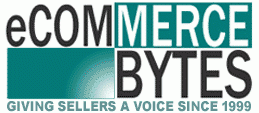
The FTC tweeted a message to consumers informing them they can get information about marketplace sellers and can report questionable activity thanks to a new law called the INFORM Act.
The Friday morning tweet linked to a page on the website of the FTC (Federal Trade Commission) where it stated in part:
“The INFORM Consumers Act is designed to deter criminals from selling stolen, counterfeit, or unsafe items through online marketplaces. It also gives shoppers information about sellers and a way to report questionable activity.
“The Act says online marketplaces must disclose contact information about many third-party sellers of new or unused consumer products on their product pages or in order confirmation messages. Shoppers could use the information to learn more about a seller they’re not familiar with.
“The online marketplace also must give shoppers a way to report suspicious conduct.”
The FTC said shoppers might not see the information for all third-party sellers, explaining: “the law covers only “high-volume” third-party sellers that meet specific sales thresholds.”
It also linked to a page on the FTC website that spelled out more information for sellers and marketplaces, including a notice that violations could result in civil penalties of $50,120 per violation for online marketplaces.
How does the FTC define a ‘‘high-volume third party seller’’? In general it said, it is “a seller in an online marketplace that, in any continuous 12-month period during the past 24 months, has had on that platform 200 or more separate sales or transactions of new or unused consumer products, and $5,000 or more in gross revenues.
“In calculating the number of sales or amount of gross revenues for the “high-volume” threshold on a given online marketplace, the only sales that count are ones made though (sic) that online marketplace and for which payment was processed by the online marketplace, either directly or through its payment processor.”
It also stated that law specifically exempts businesses that have made their name, business address, and contact information available to the general public; that have a contractual relationship with the marketplace to manufacture, distribute, wholesale, or fulfill shipments of consumer products; and that provide the marketplace with identifying information that the marketplace has verified. “The law also exempts from the definition of ‘‘high-volume third party seller’’ the online marketplace itself.”
The FTC said once a person or business meets the definition of a “high-volume third party seller,” the online marketplace has 10 days to collect the required information from them, including bank account information; Tax ID information; and contact information.
The marketplace then has 10 days to verify that information.
The following section may be of particular interest to sellers:
What kinds of disclosures must an online marketplace make?
If a high-volume third party seller has annual gross revenues of $20,000 or more on a particular online marketplace, the marketplace must clearly disclose the following information on each of the seller’s product listing pages, or in order confirmation messages and account transaction histories on that platform:
- the seller’s full name, which may include the business name or the name the seller uses on the online marketplace;
- the seller’s physical address; and
- contact information that will allow consumers to have what the law calls “direct, unhindered communication” with the seller, including a working phone number, a working email address, or other means of direct electronic messaging that may be provided by the marketplace – as long as that other means doesn’t prevent the online marketplace from monitoring communications with consumers for fraud, abuse, or spam.
If the marketplace is unable to gather and verify the information, the following applies:
“If a high-volume third party seller doesn’t provide to the online marketplace the information the marketplace needs to comply with the law, the marketplace must give the seller written or electronic notice of non-compliance. If the seller doesn’t provide the information within 10 days, the marketplace must “suspend any future sales activity” of the seller until the seller complies with the requirements of the law.”
Of course some sellers are loathe to hand over sensitive information. The FTC said the law requires that online marketplaces “implement and maintain reasonable security procedures and practices.”
The INFORM Act goes into effect on June 27, 2023.
Due to problems sellers are having getting Amazon to verify their accounts, some are calling for Congress to delay enforcement of the new law for 90 days (see the AuctionBytes Blog for details).




